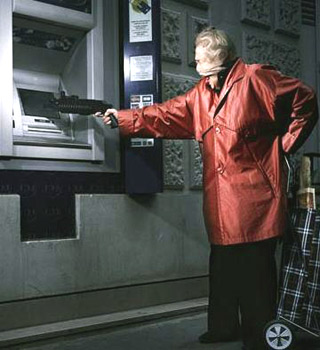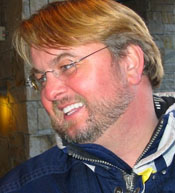I used to work for a company that created software for publishers.
It handled mail orders that were accompanied by checks, cash, or credit
card information.
We had a balancing tool that ensured all the money that came into the
mailroom was entered into the system and deposited in the bank. It protected
against embezzlement.
In 1988 we installed the software at a large Christian publisher. When
management heard of our checks and balances, they were appalled. They felt
it questioned the integrity of their employees. They asked us to turn off
the balancing feature.
A year later, a timid, gray-haired, rooster-pecked grandmother—a long-term
employee of the publisher—stole fifteen thousand dollars.
Afterward I asked her, “Why?” She shyly stammered, “It was so easy.
The money was just sitting there. It was just so darn easy.” She added,
“I’d heard of embezzlers before. I always said, ‘I’d never do that.’
And then I did.”
Her simple path
to self-destruction
This simple grandmother’s self-identity of “I’d never do that,” led
to a false self-confidence, but when external constraints were removed
(“It was so easy”) she became a thief. Her self-pretense allowed a weed
of greed to grow in her heart.
How many weeds grow in our hearts, secretly nourished in the soil of
“I’d never do that”? How many of us secretly think, “But I’d never … use
drugs, be unfaithful, cheat on my taxes, molest a child, or resort to violence”?
We see others divorce or commit adultery, or perhaps they betray us.
We say, “I’d never do that,” but can we be so sure? If we had their
parents, their lives, their temptations—and if we had their
restraints removed—do we honestly know what we’d do?
If God removed those same restraints in our lives, might we do the very
same thing? Or maybe something completely different but equally harmful
or worse?
What if…
What do we mean when we say, “I’d never do that”? Do we mean, “I would
never do that,” or “I could never do that”? I think we tell ourselves,
“I would never…” when what we really mean is, “I could never….”
But what if we could? What if God, for one sliver of time, looked away,
and if we knew, for one sliver of concealment, no one—not even God—would
ever find out?
This is actually the terror of the Ring of Power (in The Lord Of The
Rings). If given unlimited power—if every restraint was removed—we might
not do the evil Sauron does, but we might do something else equally evil.
If given the Ring of Power:
-
Galadriel would become “Great and terrible … All shall love me and despair.”
-
Boromir would save his people from Sauron by becoming an evil substitute.
-
In the end even Frodo yields. He is saved by an external force—Gollum’s
teeth.
God’s grace in rules
and restraints
Restraints (such as accountability groups like Covenant Eyes, peer-pressure,
or will-power) temporarily save us from destructive behavior. We agree
to them in moments of clarity to strengthen us in moments of confusion.
Restraints are like training wheels. They keep us upright as we develop
an inner poise. But in a moment of mechanical failure, the wheels may fall
off and we crash.
How dare we disparage our friends when their training wheels break!
They may actually have more inner poise at this moment than we do (just
not enough). It is God’s grace—not our personal greatness—that keeps us
from falling.
Do we shoot ourselves up with self-euphoric heroin when we claim, “I’d
never do that”?
The danger of
rules and restraints
Moralism is not the proliferation of rules and restraints; they are
simply symptoms. Moralism is the self-assurance based on right behavior
arising from external restraints.
God desires a changed heart not training wheels for our training wheels.
When we rest our hearts on our restrained behavior, we are in a moment
of grave danger. A time will come—and it will!—when external restraints
disappear or our will-power is exhausted.
What will we do then?
If our heart rests on “I’d never do that,” we will fall. And
great will be that fall. If our hearts rest on “There but for the grace
of God go I,” (found in God-given restraints and God-formed inner-poise)
we will ride upright in freedom. And great will be that ride.
We need a strengthened
heart
God wants inner strength of heart, not just external restraints. He
says, “Do not be like the horse or the mule … held in check by bit and
bridle” (Psalm 32:9).
Let’s find almost any restraint that keeps us from trampling on each
other. But those bits and bridles are training tools to teach us to rely
on God’s grace, to guide us as our hearts are reshaped with his desires.
Someday the bits and bridles are coming off.
Retrained behavior is good; a spirit-changed heart is better. Only God
himself can strengthen our hearts; not rules or restraints, only a relationship.
Holding on to
God
I haven’t spoken to the woman who embezzled since that interview twenty-five
years ago. I don’t know where she is or what she is doing or even if she
is still alive. But I’ll always remember how she concluded our discussion.
“Sam,” she said, “I used to go church thinking, ‘I’d never do that.’
Now I’m holding on to God for dear life, because I know I might.”

